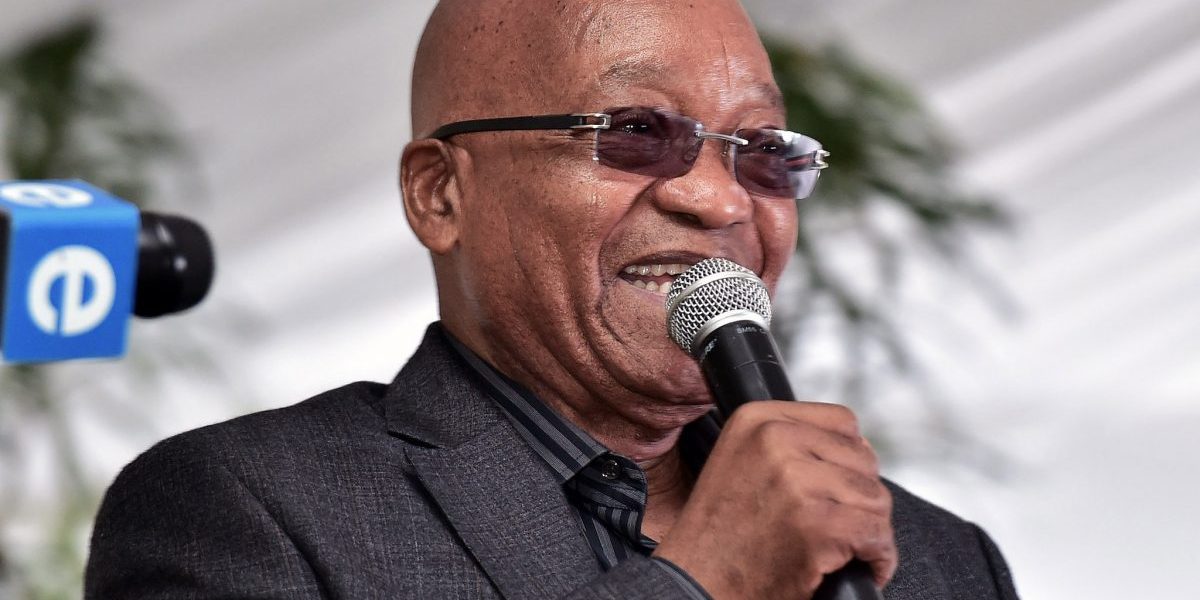It is whether — if, or when, they do — leadership understands the responsibility of applying the principle of zero tolerance of corruption unequivocally. By that count, SA has earned kudos in recent weeks: progress on Travelgate, and most notably the bold move of releasing Jacob Zuma from his responsibilities as deputy president.
Many similar challenges lie ahead in our new democracy, not least of which is addressing head-on the Hydra-like arms deal and Oilgate, and the integrally related issues of public accountability and corporate governance. A democratic state can never rest on its laurels — it is always a work in progress.
While Zuma will, it is hoped, have his day in court, the principle that triumphed last week was the imperative of maintaining the integrity of the office of the deputy president. This had been sullied by Judge Hilary Squires’ ruling about Zuma’s relationship with Schabir Shaik.
Since the Shaik judgment, there has been much made of the former deputy president’s qualities as a skilled negotiator helping to bring peace to KwaZulu-Natal, and his efforts in Burundi.
In that sense Zuma is the classic flawed hero in ancient Greek tragedy — a man of many qualities who made a substantial contribution to the building of this nation and indeed to bringing peace to the continent, but whose tragic flaw of living beyond his means “led him to temptation” and his fall. As with Greek tragedies, there are moral lessons to be derived from his fate.
One of the most important points about democracy is the ability of governments to control themselves and act against the excesses of their members. Of course, corruption is not only a phenomenon of developing states. Yet its effects on poor countries are that much more pronounced. It eats away at the scarce resources available for development, and entrenches cliental systems that perpetuate ineptitude and inefficiency.
As Judge Squires stated in his judgment: “The after-effects of systemic corruption can quite readily extend to the corrosion of any confidence in the integrity of anyone who has a duty to discharge, especially a duty to discharge to the public.”
One of the greatest challenges facing African leaders is to send a strong message that corruption in the public service will not be tolerated, no matter how high it goes.
The African peer review process can encourage leaders and anticorruption institutions to be bolder in dealing with perpetrators by beginning to build up an attitudinal change. It is particularly important for officials to recognise that the benchmark of integrity must be much higher for holders of public office than for others. Corruption becomes a contravention of the social contract between governors and the governed.
This is why the forthcoming reports of the peer reviews conducted thus far in Africa are so important, and need to be used by governments to spearhead action to address shortcomings where these are identified.
The Shaik case reinforces the need to focus on the other half of any corrupt equation — the role of private companies. Institutions such as the Organisation for Economic Co-operation and Development (OECD) have developed, refined and expanded guidelines for multinational enterprises.
More recently, the OECD has been working on guidelines on corporate governance of state-owned enterprises. In SA, the King report is one of the most comprehensive codes for business anywhere in the world. But codes of conduct, whether for the public or the private sectors, are meaningless unless they are adhered to and enforced.
There is a growing recognition that private companies cannot operate in a moral vacuum. They have a social responsibility to the communities in which they operate and to their shareholders in ensuring that their conduct complies with international standards, which should be consistent no matter where they operate. Too often multinationals have been happy to observe different standards in developing countries.
The absence in many African states of a vibrant private sector often means that the resources of the state and its procurement opportunities are the only means of access to wealth or income; hence the nexus between business and politics, which can lead to “symbiotic” relationships.
To break this often requires political will and courage. Democracy is not about bending to the particular popular feeling, fad or narrow political interest of the day. It is about creating a polity and institutions that uphold constitutional values.
Some African countries are leading the way in breaking this cycle. Lesotho’s prosecution of certain multinationals involved in corruption in the Highlands Water Project, as well as the CE of the Lesotho Highlands Water Authority, are cases in point.
More than anything, SA’s arms scandal and Oilgate have confirmed the importance of examining and assessing the checks and balances that limit the emergence of “mutually beneficial symbioses” between politicians and business, whether these are for personal benefit or for that of a particular political party.
Greater transparency regarding the sources of political party funding must also not be ignored. The African peer review mechanism should incorporate questions relating to party funding and freedom of access to information in the public interest.
SA will debate the events of recent days for some time. But we must remember to extract the bigger lessons, which can further entrench an accountable democracy.








